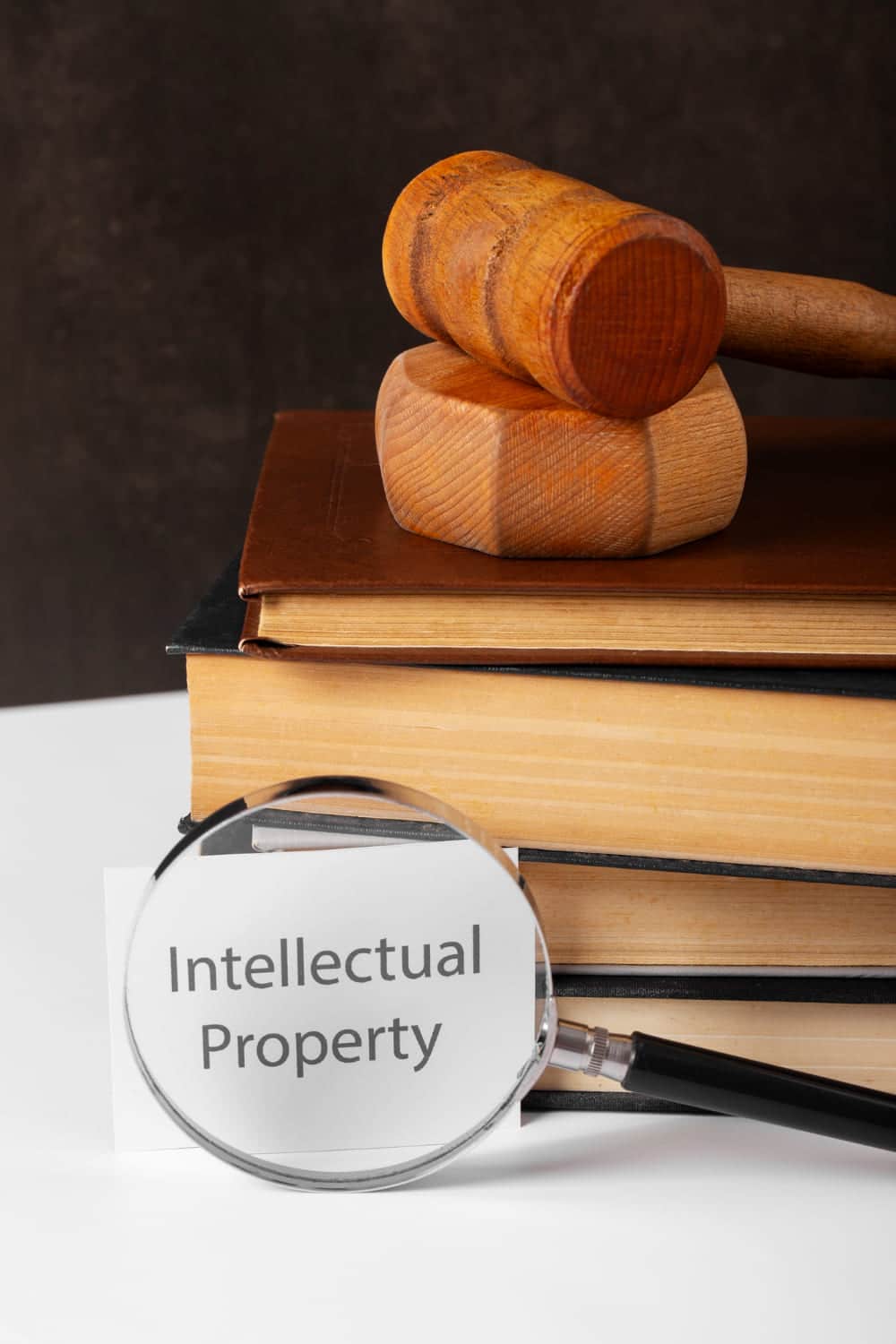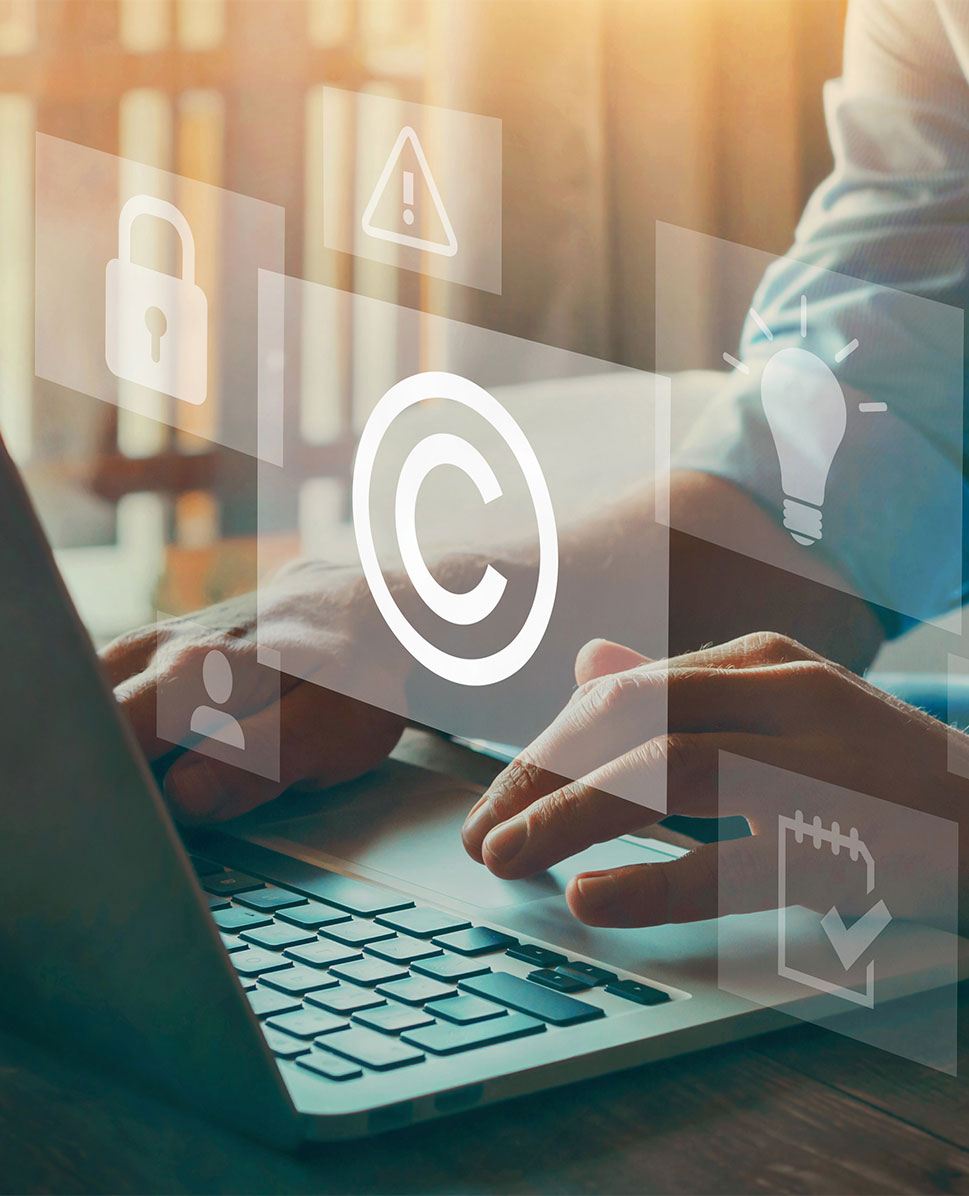Intellectual Property Litigation (IP) Support for Law Firms & In-House Counsel
In the fast-moving and high-profile landscape of intellectual property (IP) litigation, collaboration between law firms and in-house legal teams is more essential than ever.
With ever-evolving technology and the growing volume of multifaceted disputes, data, technical considerations, and regulatory components in IP cases require a collaborative and coordinated approach. This is the function of litigation support.
Litigation support lawyers serve an intermediary role between outside counsel and in-house teams in a way that enhances collaboration and communication.
Litigation support professionals provide a variety of services to act in a supporting position, including discovery, expert witness coordination, and other multi-level logistics between the firm and client.
This blog outlines the importance of litigation support in today’s litigation environment and why it is an essential service for both firms and corporate legal departments.


The Complexities of Modern IP Litigation
IP litigation is no longer limited to simple patent/trademark disputes. The field now involves issues including:
-
- Patent infringement in areas like biotech, software, and telecommunications
- Misappropriation of trade secrets in global supply chains
- Copyright disputes in media and digital content
- Trademark dilution in ecommerce and social media
Each of these areas raises unique issues of law and complicated subject matter. A pharmaceutical patent dispute may focus on molecular interactions; in a copyright case, the structural arrangement of code or sound design might be at issue; and in a claim of misappropriation of a trade secret, the analysis of ex-employees’ emails and devices could involve a forensic expert.
In addition, the timing of IP litigation timelines is shrinking, the burden of discovery is increasing, and courts now require evidence to be presented in more sophisticated forms. Thus, even the strongest legal argument may not withstand critical scrutiny without significant logistical, technical, and analytical support.
What Is Intellectual Property Litigation Support?
Litigation support refers to a suite of specialized services that assist legal teams throughout the life cycle of a case. These services are particularly valuable in IP litigation, where technical complexity and voluminous data are common. Litigation support professionals may include:
-
- Technical analysts
- eDiscovery specialists
- Document reviewers
- Visual presentation experts
- Expert witness coordinators
- Paralegals and project managers
These professionals do not replace the regular IP lawyers, rather, they help in fulfilling their cause. By taking on highly detailed, time-consuming, or technical aspects of litigation, they allow attorneys to focus on high-level intellectual property strategy, legal argumentation, and client engagement.


How Litigation Support Connects Law Firms and In-House Counsel
1. Improving Communication and Coordination
When it comes to IP disputes, law firms and in-house counsel offer different perspectives, and while these perspectives can differ, they can often complement each other. Outside counsel focuses (for the most part) on winning the case and navigating procedural aspects of the case, and making arguments that they think will be convincing to a judge or jury.
In-house counsel has to weigh the litigation goals with business goals, i.e., what is the reputational risk created by responding to the lawsuit, how much cost they can directly control, the regulatory aspects of having legal disputes, and how this impacts business core assets.
Litigation support can help streamline these objectives by ensuring that it provides a level of transparency, consistency, and communication regarding what is happening between all parties involved in the litigation.
Project managers and legal operation partners can also provide dashboards, manage deadlines, and help ensure that everyone receives case updates timely. This coordination decreases the chances of having unnecessary errors and promotes an overall goal of a tightly aligned intellectual property litigation strategy.
2. Improving Discovery and Document Review
IP law cases can produce huge amounts of data, from lab notebooks, trademark, copyright, and patent applications to source code and communications within your organization. Manually reviewing these materials can easily consume hundreds of attorney hours and inflate litigation costs.
IP attorneys apply sophisticated tools and workflows to make this work less time-consuming and less expensive. They can:
-
- Use predictive coding and AI to identify key documents
- Tag documents according to relevance, confidentiality, or privilege
- Coordinate privilege logs and all responsive productions
- Use secure document hosting and collaborative platforms
- Maintain portfolios for IP assets
All these improvements make discovery even less time-consuming, even less expensive, and less prone to human error.
3. Enhancing Technical and Expert Testimony
Most IP disputes involve highly technical information. In a patent infringement trial, there may be an explanation of how an algorithm works, information about chemical compositions, or an explanation of a manufacturing process. Lawyers often rely on expert witnesses to translate this information to judges and juries.
Intellectual Property attorneys provide invaluable help by:
-
- Researching and vetting qualified experts
- Preparing expert briefing materials
- Coordinating all communications between legal teams and experts
- Providing deposition and trial support with technical visual aids or mock testimonies
The logistical help provided by legal support staff allows lawyers to focus on organizing evidence and shaping trial themes (whether to support or undermine the case for an opponent).
Benefits of Intellectual Property Lawyers for Both Law Firms and In-House Teams
For law firms, litigation support offers a way to outsource tedious technical tasks so that attorneys can concentrate on strategy and advocacy. It can also enhance efficiency in the day-to-day operations of the firm and reduce the cost of litigation by optimizing workflows and document management.
Furthermore, it provides law firms with expertise that may not be available in their team, such as patent litigation expertise, eDiscovery, data visualization, etc. Ultimately, this means more value to clients through a service that is more precise, efficient, and aligns with the firm’s IP strategy.
For in-house counsel, IP attorneys’ litigation support helps provide tools and visibility to ensure that they can keep consistent oversight of case advancement without being buried in administrative processes related to the case.
It allows legal strategy alignment with broader corporate priorities. Support teams can also help control costs through better resource allocation and vendor management.
IP Litigation support enables legal departments to make faster and better, more strategic decisions by organizing large and complex information into consumable formats, allowing them to operate more like strategic business partners.
Hiring Services of an Intellectual Property Attorney for your firm or in-house concerns
At Drishti Law, our committed principal IP attorney provides strategic, results-driven support at all stages of intellectual property litigation. From the enforcement of patent and trademark rights through the United States Patent and Trademark Office (USPTO) registration to defending complicated infringement claims, we deliver legal precision and outstanding technical knowledge to safeguard your innovations and IP assets.
Whether you’re a startup or an established business, our team works closely with your in-house counsel and law firm to provide clear, practical, and business-adapted IP solutions.
If you have any questions about our intellectual property services for your law firm or in-house counsel, call 773-234-1139 to schedule a free consultation. Our experienced IP lawyer at Drishti Law can guide you through trademark enforcement, licensing agreements, and legal strategies to safeguard your brand.
